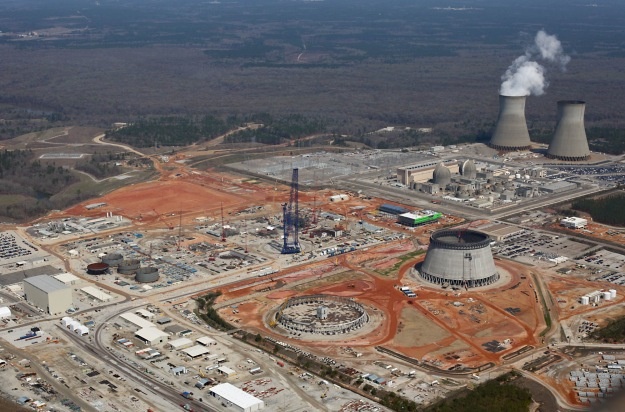INSTITUTE INDEX: Secret sweetheart deal for Georgia nuclear reactors puts taxpayers at risk

Amount the U.S. Department of Energy is providing in loan guarantees to Southern Company subsidiary Georgia Power and partner Oglethorpe Power to build two new reactors at the Vogtle nuclear power plant near Augusta, GA: $6.5 billion
Dollar amount the DOE typically charges in credit subsidy fees for such loan guarantees to cover the risk borne by U.S. taxpayers should anything go wrong with the project: several hundred million
Amount the DOE is charging Georgia Power and Oglethorpe Power in credit subsidy fees for the Vogtle project, according to documents released in response to a journalist's Freedom of Information Act request: $0
Number of times the Southern Alliance for Clean Energy took DOE to court to get it to release some information about the Vogtle deal, though the government did not disclose the free credit offering to the watchdog group: 2
Amount that Constellation Energy Group, now a subsidiary of Exelon Corp., was asked to pay in credit fees for a loan guarantee for a Maryland reactor, leading it to cancel construction plans: $880 million
Year in which the Government Accountability Office issued a report that said if DOE underestimates the credit subsidies, "taxpayers will ultimately bear the costs of defaults": 2012
Amount the DOE charged in credit subsidy fees for a $535 million loan guarantee for solar-panel maker Solyndra, which later went bankrupt, leading to political attacks by House Republicans against the Obama administration: $0
Number of months that the Vogtle project is already behind schedule: 21
Amount that it is already over budget: $1 billion
Current total estimated cost of the Vogtle project: more than $15 billion
Year in which the top U.S. nuclear regulator predicted that nuclear power would someday be "too cheap to meter": 1954
Percent by which cost estimates for new nuclear reactors grew between 2002 and 2008: 200 to 400
Number of new reactors for which companies sought construction permits from the Nuclear Regulatory Commission between 2007 and 2009: 30
Number of those proposed reactors that are actually being built amid problems including a lack of financing and uncertainty following Japan's Fukushima nuclear disaster: 4
Percent of those reactor projects that are behind schedule and over budget: 100
Number of U.S. and international organizations that have formally rejected nuclear power as a solution to the climate crisis due to its high cost, slow deployment, and serious safety risks: more than 800
(Click on figure to go to source.)
Tags
Sue Sturgis
Sue is the former editorial director of Facing South and the Institute for Southern Studies.
